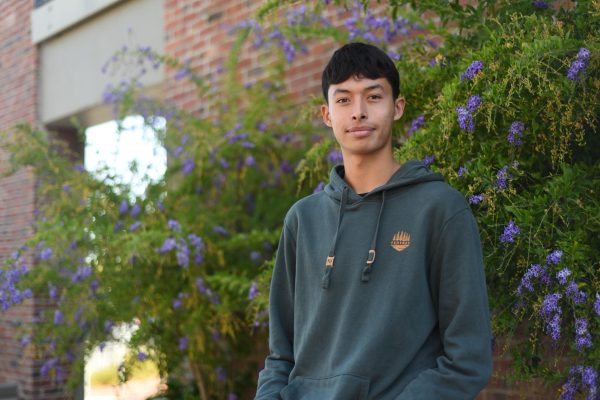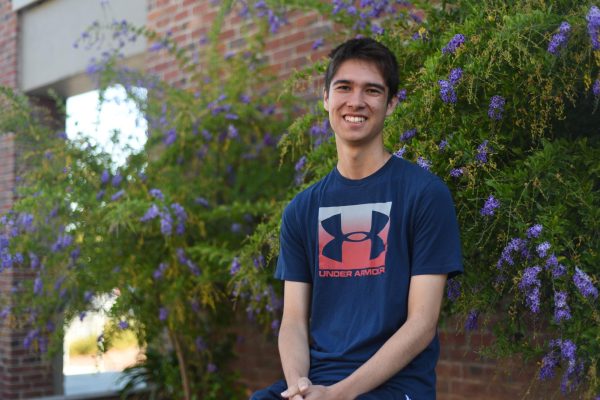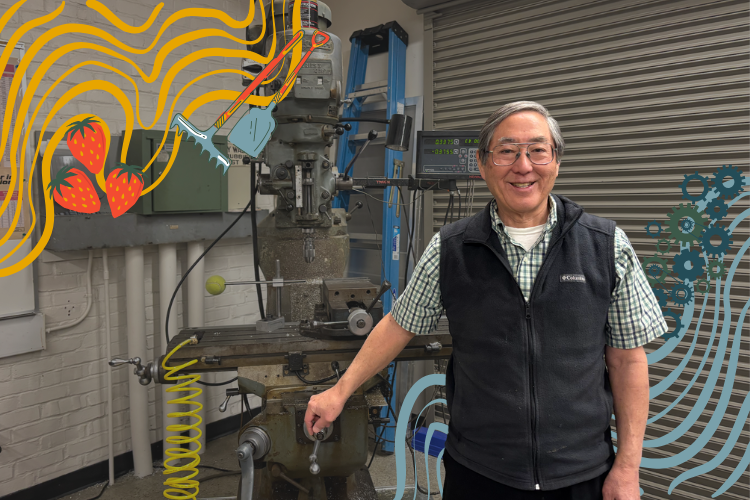MVHS alum ‘21 Andie Liu was walking around her college campus with her friend when she was approached by a visitor. The visitor asked “What are you majoring in?” When Liu responded “computer science,” the visitor gave a nod of approval. The visitor then asked Liu’s friend, who said she was majoring in English, but the visitor dissaproved. Liu was no stranger to judgement like this. In high school, Liu’s dad wanted her to major in computer science, but she applied as an English major and later switched to computer science. At the start of college she was often asked questions like “What are you going to do with that?” or “Are you going to be an English teacher?”
External pressure was not the only reason Liu switched from English to computer science. In her English classes, she felt out of place because she believed other students were just trying to sound smart by using big words. Liu later took an introductory computer science class, and she found it easier than expected. When she eventually declared her major, she chose computer science, even landing an internship the summer before senior year.
However, during the internship, Liu realized she didn’t actually enjoy working as a software engineer. Since the computer science major requirements had been fulfilled by her senior year, she spent the year exploring interests outside of computer science.
“I had already been feeling uncertain about whether computer science would fulfill me,” Liu said. “So I was rethinking my whole thing and having a quarter life crisis, as you will. And so the next semester, I didn’t take a single CS class. I was taking comparative literature, Asian American ethnic studies, psychology and Chinese. And that was really fun. This semester I’ve been doing creative writing like short fiction and poetry, and learning pottery and calligraphy, which have been fun side quests, but I’m still uncertain where it all goes.”

MVHS counselor Belinda Olson says that it is common for students’ interests to shift in college because new majors and career paths are created all the time. Olson suggests that students should explore courses in college so they can learn if they like the subject or not. Ultimately, she hopes students will consult their past experiences to choose what’s right for them.
“Keep in mind that you are the only one that has to go through your experience,” Olson said. “As much as other people might have influence, feedback or suggestions, it’s their experience that they’re taking from. So thinking about ‘Whether that would work for me?’ Or ‘Is this a good choice for me?’ is important.”
Since senior Jinyong Um is unsure of what he wants to major in, he is going into Purdue University as an unspecified engineering major. Um is certain that he does not want to enter humanities since he finds those subjects challenging. He hopes to find a major that he likes and also pays well as a career.
“I’m just going to hope that somewhere in college I just find something randomly that I really like, or if I end up liking one of the core classes,” Um said. “Worse comes to worse, I’ll just end up picking one. But for now, I just picked engineering.”
While Um hasn’t experienced pressure from his family regarding what to major in, Liu experienced pressure from her family. She says that one way to deal with parental pressure comes from step four of “How to Disobey Your Tiger Parents, in 14 Easy Steps.” She believes that in the face of pressure, it is good to have others back off so one has the time to figure out things by themselves.
“Just do what you want and live your life for yourself,” Liu said. “Because you should not live your life for your parents because it’s your life, and you don’t owe them anything, even if they’re trying to guilt trip you or manipulate you or anything, it’s your life. Please live it for yourself.”
Though Liu was able to explore many different interests in her senior year of college, she is still sticking with the computer science path for now because she already has a job from her internship’s return offer. However, she doesn’t see herself staying in computer science forever and wants to pursue creative writing on the side like some other tech workers do. Liu says this reminds her of multiplicity, the state of having multiple truths at the same time, and also Virginia Woolf’s book “To the Lighthouse.”
“Something that I learned this year about multiplicity is actually through rereading ‘To the Lighthouse,’” Liu said. “There are so many different angles to you, and there’s so many truths at once and they can feel contradictory and conflicting. But that doesn’t mean all of it is false or only one is true, because I think it assumes that there’s a fixed context and time. I want to emphasize that you don’t really have to have a narrative about who you are, just reducing you to this one thing at this one time.”












